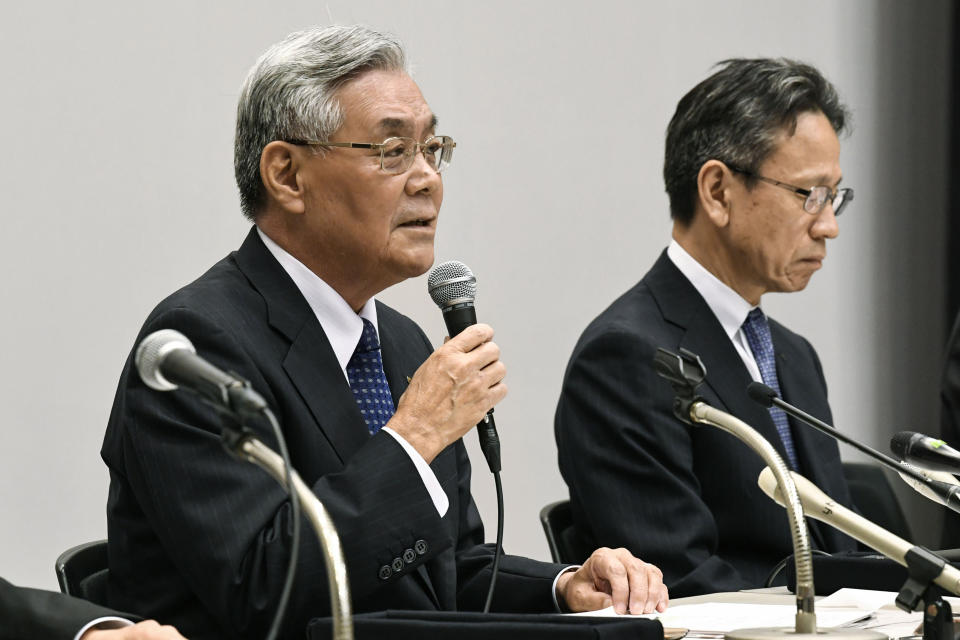Japan utility head quits over gifts from town official
TOKYO (AP) — The head of a Japanese utility resigned Wednesday over a scandal involving 20 of its executives who received cash and gifts totaling $3 million from a former official in a town where it operates a nuclear power plant.
Kansai Electric Power Co. Chairman Makoto Yagi said he was taking responsibility for causing public distrust.
Company President Shigeki Iwane said he will resign later this year when independent investigators release findings. The two acknowledged they are among the 20 executives who received the cash and gifts from 2011 to 2018 from the former deputy mayor of Takahama in Fukui prefecture in western Japan, home to four Kansai Electric reactors.
"I deeply apologize for betraying the trust of the people, including our customers, and for causing tremendous trouble," Yagi said at a news conference.
The case surfaced in September during a tax inspection and showed that collusion between officials and Japan's nuclear industry continued even after the 2011 Fukushima disaster, which investigators have blamed in part on such cozy relations.
A report of a preliminary internal investigation released last week showed that the 20 executives received a total of 320 million yen ($3 million) in cash, gold coins and cups, and coupons for expensive tailored suits from former Takahama Vice Mayor Eiji Moriyama over the seven-year period.
The scandal has spilled over to ruling party lawmakers.
Former trade and industry minister Hiroshige Seko acknowledged that he accepted 6 million yen ($56,000) in political donations from 2012 to 2015 from a company where Moriyama served as an adviser. Seko said he has never met Moriyama and "there was nothing illegal about it."
Tomomi Inada, a senior lawmaker from Fukui belonging to Prime Minister Shinzo Abe's ruling party, said she accepted a smaller donation from another company at which Moriyama held an executive position.
The Kansai Electric investigation, based on interviews with the executives, said Moriyama often came with gifts hidden in the bottom of boxes of sweets, though company officials denied they were bribes.
The report said Iwane and other executives tried to resist but eventually accepted the gifts after Moriyama got upset and threatened to make their business difficult.
Iwane said earlier that he was afraid that hurting the feelings of the influential man would harm the company as the nuclear industry was struggling after the March 2011 Fukushima disaster, which shattered public trust in nuclear safety.
No criminal charges have been filed, but legal experts said Kansai Electric officials could be held liable for bribery if the flow of money was predetermined.
The report said the money had been received by Moriyama as a "handling fee" from a local contractor at the nuclear plant. Local officials said Moriyama remained a powerful fixer even after he retired as deputy mayor of the town and held executive positions at a few other companies. Moriyama died in March.
___
Follow Mari Yamaguchi on Twitter at https://www.twitter.com/mariyamaguchi




